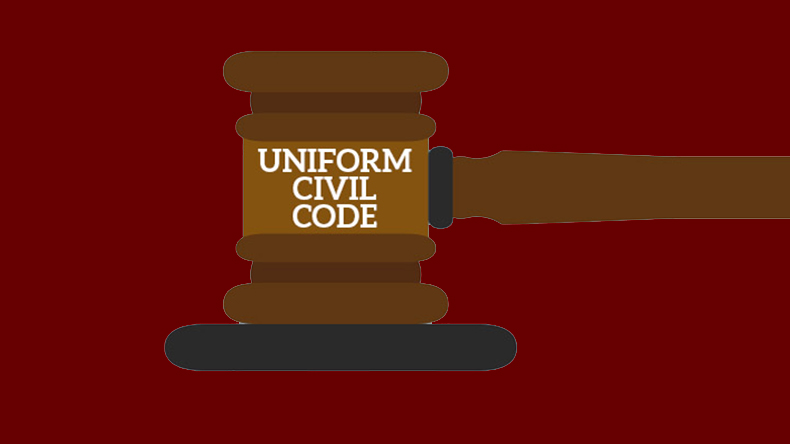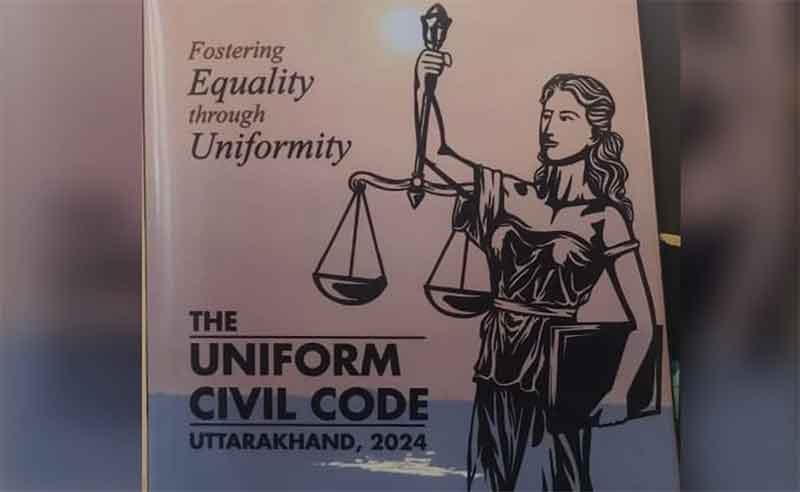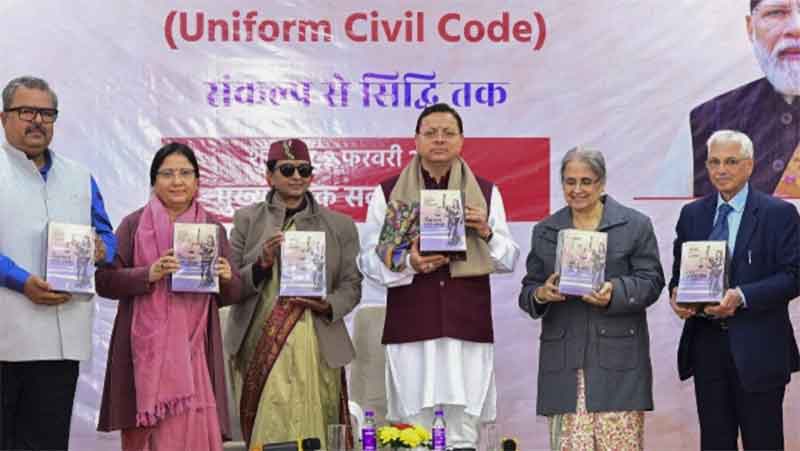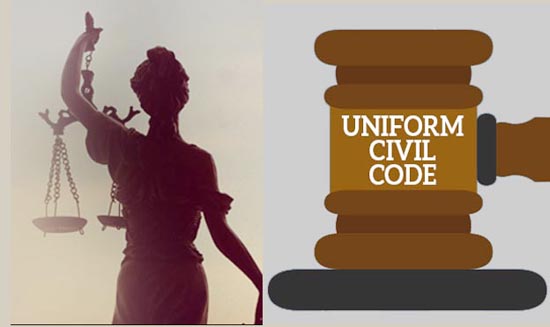
Uniform Civil Code (UCC) is a red herring much dragged about in the Indian political discourse from the dawn of the constitution. Even the constituent assembly couldn’t resolve this primordial force at its inception. Consequently, UCC was placed in Article 44, of part four of the constitution which forms the Directive Principle of State Policy (DPSP). Through out the time the whole debate was/is centred around three normative concerns, that is, national integration, equality of laws and gender justice.
Once again, the same is going through another round of convoluted confab after, 22nd Law Commission of India issued a public notice to supplicate opinions from public and concerning religious organizations. Against the backdrop of public notice, it turns out to be important to consider what was the opinion of 21st Law Commission regarding the implementation of UCC. In a very clear and precise language it said UCC is “neither necessary nor desirable” at this stage and also suggested certain measures to tackle down the evil practices that undergo with personal law penal provisions. Amongst the suggestions the report pointed out to strengthen the economic rights of women alongside ending discriminations that goes parallel with personal laws in India. But the government did not move an inch to implement these progressive suggestions by the 21st Law Commission.
Why UCC now
The political narrative of BJP always larks around certain polarisation that helps them in electoral gain. Likewise, now UCC serves as a political hot button as the Assembly Elections are scheduled in four states and the General Election next year. By now controversial issues like Ram Mandir, Article 370, Citizenship Amendment Act and Instant Triple Talaq has been sorted out. Recently PM Modi in his speech at Bhopal stressed upon how the evil practice of Instant Triple Talaq was banned in Muslin countries; to reference himself he cited Egypt and Pakistan, with this he slide down the speech to UCC and said, in the name of UCC people are being misled, how it would be possible to run a family if there are two distinct laws for two different member of the same family; said the PM. Is it what PM pointing out to “one nation, one law”, if it is so, what the 21st Law Commission said about uniformity of laws, it is said,” Most countries are now moving towards recognition of difference, and the mere existence of difference does not imply discrimination but is indicative of a robust democracy.” Deliberately ignoring the socio-cultural diversity and implementing UCC might turn out a catastrophic move. As of now there is no draft of UCC presented by the parliament, therefore speaking “for or against” a non-exiting UCC is a thoughtless exercise.
Competitive communalism in the name of UCC
The infantry trooper of Hindu Right Wing, who wants the communal cattle keep boiling often demanded UCC; to spread hearted and intercommunal polarisation. Often times pejorative poke like Hum paanch, hamare pachees (we five our twenty five) hurled to indicate Muslim population and polygamy. While the government data are speaking contrary to what the popular narrative speaks up, census report of 1991 finds that all community is polygamous but Muslims are least polygamous; Tribals 15.25%, Buddhists 7.9%, Jains 6.7%, Hindus 5.8% and Muslims 5.7% . The very recent National Family Health Survey (NFHS-5) 2019-2021, shows that polygamy amongst Muslims has sharply declined; by now it has reduced to 1.9% only.
As far as allegations regarding Muslims not believing in population control and family planning, former Election Commission SY Quraishi in his book, “The Population Myth: Islam, Family Planning and Politics in India”, writes that (citing Quran), It is surprising and remarkable that 1,400 years ago, when there was no population pressure anywhere in the world, the Quran was talking about planned families. For instance, a verse in the Quran says: “Young men you should marry when you can afford it, when you can bring up a family.” One person seeks a clarification from the Prophet and asks: “I’m a poor man but I have sexual needs so what should I do?” The Prophet repeats the words of the Quran and tells him to try fasting as that represses sexual desire. These two verses of the Quran are, according to him, a recommendation to family planning. In another verse, a man with many children says he doesn’t want to have any more. At that time, the only family planning method was the withdrawal method called Al Azl and this man wanted to practise it. However, he says that the Jew had called the method a form of infanticide. The Prophet tells him the Jew lied. This means even this method is allowed. There are other verses as well, which means we have made a mistake in the interpretation. The only thing that every interpretation prohibits is sterilisation. Yet, more than 20% of Muslims have adopted sterilisation. They have gone out of the way, even violating Islamic principles for family planning.
On the other hand, Muslim Right-Wing organizations like, All India Muslim Personal Law Board (AIMPLB) and allied organizations has since the very beginning maintained its conservative position so far as reforms in family law is considered and it continues till date. The Instant Triple Divorce (ITD) which is now criminalised, is one such example where Muslim clergy opposed it, which is entirely a non-Quranic practice, while the Muslim countries like Pakistan, Egyptba, Syria, Jordan, Sudan, Iraq and Tunisia has already banned such practice. Even these countries have revised its family law to the extent of polygamy, minimum age of marriage, maintenance etc. In India such family laws, mentioned above, is inconsistent with constitutional principal of secularism and equality must done away with.
Expected repercussions, if UCC gets implemented.
Considering if somehow UCC gets implemented, ‘Ashraf Hegemony’ (upper caste Muslim hegemony) will usher and hijack Pashmandah Muslims (lower caste Muslims) and ultimately the whole community will turn identity conscious, in other terms it will make Muslims more communal, because it leads to Hindutva majority state politics. In the minds of common people its very clear that the governments agenda to bring UCC has nothing to take with ‘national integration, or ‘gender justice’, it is only about upcoming elections and electoral gain out of polarization.
Without UCC the Need of Hour
If the government is truly conscious about ‘gender just laws’ to bring equality in the society then it must reconsider the recommendations made by the 21st Law Commission. Also, government should bring legislation to codify the uncodified areas of personal laws across communities and this can be done without UCC as well.
Mohammad Adil is doing LLB from CLC, Delhi University.












































